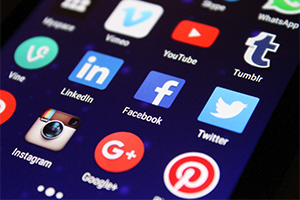No, you have not accurately stated my position.
Misinformation is a factual matter, not based on what I like or don’t like. Information is either true or untrue. The people banned for spreading misinformation were banned for stuff like spreading falsehoods about the election, claiming fraud, lies about COVID-19, and so on. None of this was stuff that someone just called “misinformation” but was really a different of opinion. It was factually wrong, and demonstrably dangerous, regardless of what anyone “likes.”
Similarly, my moral arguments are not about what I like or dislike, any more than yours are. I simply argued that freedom of expression is not the moral at issue here, and that other moral concepts are. Certain things are generally accepted as egregiously wrong and thus unacceptable—spreading misinformation, advocating violence, inciting a riot, staging a coup, certain blatantly bigoted remarks, and so on. I, like most people, think those are wrong and harmful, and thus agree with Twitter’s position that such should be bannable offenses.
That said, I believe Twitter would have every right to change their policy. Twitter would have every right to ban AOC as you describe. However, unless she violated one of those things above, I would oppose them doing so. I would in fact support a boycott and try to set up an alternative, and I would be far from the only one. I in fact would not expect Twitter to retain its very high position in the marketplace. It would be more like Parler. And that’s why they don’t just randomly ban people or change their policy like that–they know it would harm them.
The main purpose of my post was to disagree with your assertion that someone who did not believe it was a freedom of speech issue must therefore think the scenario you described is perfectly acceptable. I can actually both say that Twitter has the right to ban AOC in the scenario you describe, but they also shouldn’t do it. I can then use my freedom of expression to cause consequences for their actions.
The reason I care so deeply about this is what I see as the inevitable result. If we do say Twitter banning people for violating its policies is a freedom of expression issue, then the result is that the bannings were wrong, and they need to be undone. We’d then be forced to allow the misinformation that led to the sedition, the misinformation about COVID-19 that is killing people, the calls to violence, the racism and bigotry that harms minorities, the harassment and death threats, and so on. In short, seeing it as a freedom of speech issue lets these people who are causing harm win the ideological debate, and I find that utterly undesirable.
That is the problem with this what I consider an obsessive focus on freedom of expression to the exclusion of all other morals. And it’s an argument I’ve been making for most of my 11 years on this board. If we make everything a freedom of speech issue, we wind up with no way of having any other morals matter.
That’s not about what I like. It’s about morals–i.e. what is best for society, for humanity at large. That’s always something that will be based on opinion, but those opinions can be backed by fact and rational argument. And I thoroughly believe I’ve done so.
I do not think that position, with all its arguments, can be reduced to “what @BigT likes.” It’s based on moral principles, ones that society in general at least claims to hold. It just doesn’t put “freedom of expression” as the one most important moral over all the rest.
(Sorry for the delay in replying.)
